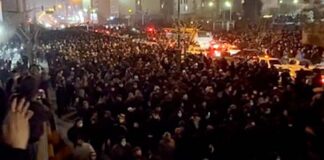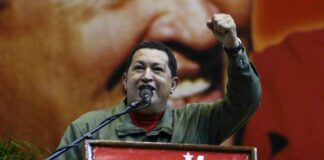Review of The Duel: Pakistan on the flight path of American power
By Tariq Ali
Simon & Schuster, $34.95
PAKISTAN IS a complex country. Popularly characterised by both political and religious extremism, its relationship with the United States is equally complex. Routinely threatened with attack, Pakistan has, conversely, been the recipient of $10 billion in US aid since 9/11. Pakistani-British author, Tariq Ali, takes on the task of explaining the relationship between the two countries.
In this, his third book on Pakistan, Ali dispels popular western myths of jihadi fanaticism and ethnic rivalries as being central to Pakistan’s tumultuous political history. The blame for the current predicament of his homeland, he argues, lies not with any religiosity but at the feet of Western imperial powers. Using his extensive historical knowledge and personal contacts, Ali charts the progression of Pakistan from its formation out of British imperial India to its current role as regional ally in America’s so-called war on terror.
Corrupt ruling class
Much of The Duel is dedicated to exposing the complicity of Pakistan’s ruling elite in American interference in the South Asian region since the country’s formation in 1947. Ali illustrates in detail the corruption, nepotism and lack of political conviction among the countries entrenched oligarchy that has allowed the US to sway Pakistani foreign policy in its own interests. The victims of this collaboration are the Pakistanis who hold a deep hostility towards the US and the despots the US support.
The early chapters covering the rise and fall of military strongmen like Ayub Kahn and Yahya Khan make interesting reading. Far from being puppets of the US, the generals pursue their own regional ambitions, often in contrast with American interests. Ongoing territorial conflict and a mini nuclear arms race with India threaten the regional stability the US requires.
The wealthy families, such as the Sharifs and Bhuttos, who perpetually vie for power with the military commanders, are described in much the same vein as the generals. Ali’s portrait of the late Benazir Bhutto as a corrupt daughter of the west will surely cause a stir. Her popular image as a champion of the people is without substance. He alleges that Bhutto and her husband amassed a $1.5 billion fortune during her two terms in office and goes on to implicate her in the murder of her brother, Murtaza.
The “duel” that Ali uses to title the book describes the struggle between the Pakistani people and their corrupt and uncaring rulers. The 1969 uprising by students and workers which brought down the dictator, General Ayub, is the most inspiring mass movement in Pakistan’s short history. Ali describes this period with the fondness and zeal of the eager participant he was.
The 2007 lawyers revolt aside, Ali gives little further attention to popular resistance, which is disappointing given the supposed inspiration for the title of the book. Instead, Ali dedicates most of the latter chapters to an analysis of western imperialism in the South Asian region.
Pakistan and Afghanistan are both crucial in American imperial ambitions. The US, due to its failure in Iraq, must secure a presence in Afghanistan to reassert its role as sole superpower. While Pakistan, due to its strategic location, would be an essential ally in achieving any such presence.
The argument Ali constructs against US imperialism in the region is well supported. He demonstrates clearly that democracy and reconstruction in Afghanistan have never been part of the US plan. He illustrates the point with a picture of violence and deprivation suffered by the Afghan people at the hands of the occupiers.
It is only when he outlines his solution to the situation in Afghanistan that his take on imperialism becomes unclear. Ali suggests that “regional pacts” between Russia, Iran, Pakistan and China could be used to take over control from the US. This, he asserts, is the “only solution” to stabilising Afghanistan and rebuilding its infrastructure. He appears to ignore the fact that both Russia and China have extensive, and brutal, imperialist histories of their own.
Likewise, Ali accepts the line from many within Pakistan that China would make an “all-weather” and “less interfering partner than Washington”. Again, his position here appears to be anti-US rather than a criticism of imperialism per se.
While Ali’s analysis of imperialism seems to fall short in places the text as a whole is definitely worth a read. His grasp of the region’s political history is impressive and makes the book a useful resource for those wanting to gain a greater understanding of the forces that have shaped the social and political status of Pakistan and its neighbours.
By Carl Taylor





